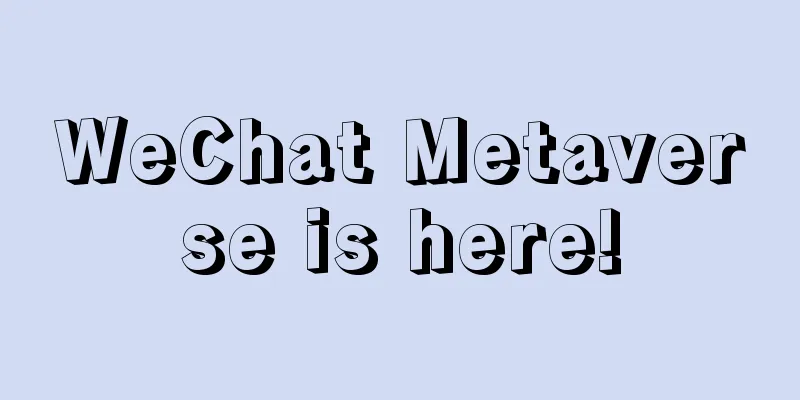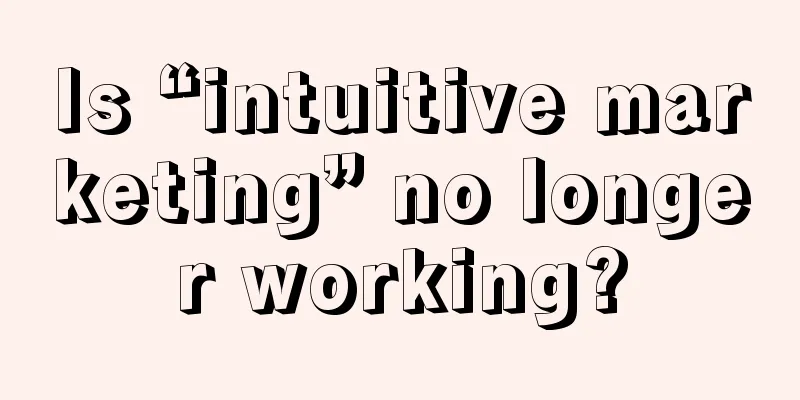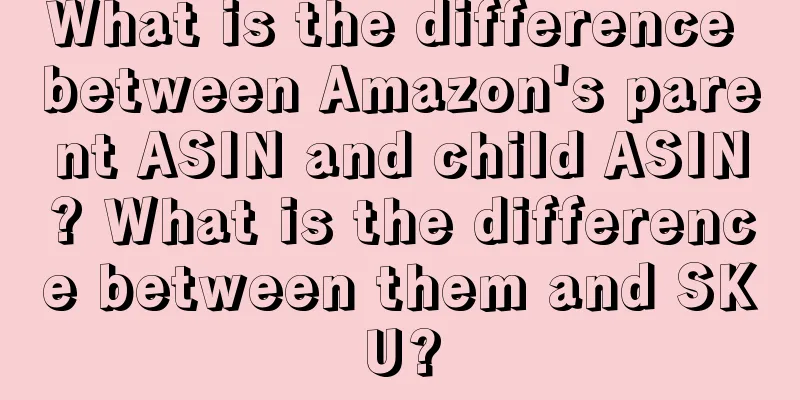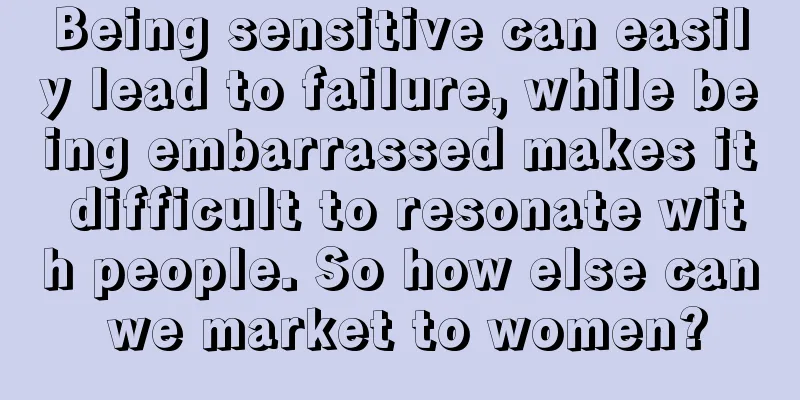When work language invades daily life, the language sequelae left by workers
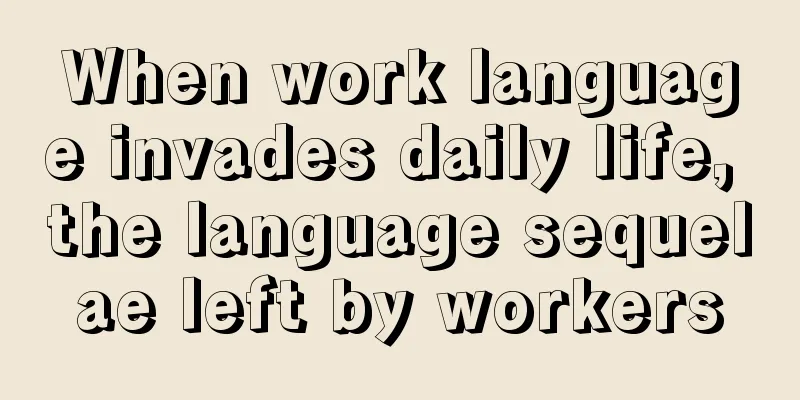
“The daily use of industry jargon may be the result of work invading our daily lives and causing a ‘deformation’ in discourse.” Image source: Shared by netizens on Xiaohongshu "My mom's Taobao refund has not been received yet. I told her: 'Please follow up on the process.' My mom said: 'Can you speak human language?'" "My mom asked me where I put my keys, and I said, 'I'll go back and double check and give you feedback.'" Image source: Xiaohongshu netizens’ comments Recently on social media, many netizens have shared their own unconscious language mashup: the language habits at work are naturally brought into daily life conversations, forming a situation where "it seems right at first glance, but it doesn't seem completely right." When the professional terms of various industries collide with the daily life of food, clothing, housing and transportation, the two originally distinct language systems are out of control like wild horses. Many netizens call this phenomenon of mixing industry jargon with daily life a language sequelae brought by work, and say "After working for a few years, I seem to be unable to speak human language anymore." When workers talk about the aftereffects of language impairment, in addition to the self-mockery and joy of hindsight, there seems to be a hint of bitterness about being "dominated" by work habits. 1. Language chaos: the “invasion” of work language into everyday discourseIn the lives of people who are deeply affected by language sequelae, drying clothes has become "centrifugal treatment", booking a homestay has become "scheduling", and waiting for food to be picked up has become "delivery"... Image source: Xiaohongshu netizens’ comments Compared to deliberately piling up industry jargon and using abstract words to piece together confusing chapters, blurting out these professional words is not "playing with memes", but more like a last resort. For senior workers, using these professional words has become a habit, and speaking these words in daily conversations is as easy as breathing. Whether it is "Internet jargon" or "laboratory terminology", these professional terms are quite different from everyday language. In work or scientific research scenarios, people tend to use specific words, and the language pursues accuracy and efficiency, and conforms to industry or academic standards. On the other hand, everyday language is more flexible and changeable. People don't care whether the words are elegant or the grammar is standard. The ultimate mission of speech is to convey feelings and ideas. In general, these two language systems exist in people's minds at the same time, and they run parallel. However, this balance seems to be broken due to long-term immersion in the work environment: the verb-object pairing is becoming more and more confusing, and proper nouns are increasingly replacing daily necessities... Image source: Shared by netizens on Xiaohongshu British anthropologist Malinowski proposed the "context theory". He believed that language is meaningful only when placed in the corresponding context. Specifically, there are two types of context: situational context and cultural context. Context constrains the form of language, thus helping to fix the arbitrariness of language symbols into certainty in a certain context. Context involves multiple factors such as the two participants, time, and place, which have different effects on the formality, style, tone, and wording of speech. The reason why language sequelae often make us laugh is that this "hodgepodge" of language allows words suitable for work contexts to break through the constraints of context and appear in daily language, forming a context dislocation. Image source: Shared by netizens on Xiaohongshu I wanted to ask if the steamed bun shop was open, but the words that came out of my brain were "Has the steamed bun shop resumed operation?" This sense of dislocation is similar to the poetic concept of "defamiliarization". The "defamiliarization" theory of Russian formalism refers to the use of abnormal content and form in language and text to reawaken people's delicate feelings about things that are accustomed to, thereby achieving a unique aesthetic experience. Language sequelae and "estrangement" are both a kind of language practice of "old wine in new bottles". "High-level abstract" professional vocabulary replaces everyday vocabulary, bringing people an alienated experience. This novel "mashup" has therefore become a source of happiness for workers. Image source: Xiaohongshu netizens’ comments According to netizens’ sharing, whether they are workers in Internet giants or researchers in laboratories, they all suffer from language sequelae to varying degrees. Misplaced language is a stigma, and whether it is voluntary or not, it becomes a mark for others to judge our profession. As netizens said, when they blurt out some industry rhetoric, they can’t help laughing before others react. In fact, few people use everyday language in the context of work. This dislocation is more like a one-way "invasion". Under the invasion of professional language, people's daily speech seems to be constantly simplified or even degraded. Netizens exclude this language from the category of "human language". Under the joy of self-deprecation, perhaps there is also helplessness about the invasion of work language. 2. Industry jargon becomes commonplace: the boundaries between work and life are becoming increasingly blurredMany netizens said, "Why isn't this considered a work injury?" and "I started crying while laughing." Image source: Weibo user comments In addition to joking, we may also have to think about whether the boundary between work and life will become blurred as industry jargon continues to erode daily discourse? "Imagining a language means imagining a way of life." Imagining industry jargon means speculating on the industry's operating methods behind the symbols. Using industry professional vocabulary in the daily context allows the abstract and obscure "jargon" to land in the daily life, breaking the speculation and imagination about the professions referred to by the symbols. These abstract words find a place in daily life that is easy to understand, thus achieving "demystification" of industry jargon. The daily use of industry jargon not only introduces professional vocabulary into daily language communication, but also shapes people's behavior and affects their daily lives. Preschool teachers will involuntarily talk to others in the tone of a child, and customer service staff will habitually use "you"... As the distance between industry jargon and daily speech becomes closer and closer, the distinction between work and daily life is becoming more and more blurred. Perhaps netizens joked that "seeing this Weibo post is like working overtime", and the tension brought by work seems to continue in language. Image source: Weibo user comments How do people view the relationship between work and life? Perhaps the topic #What does it matter to me if I'm ugly at work after work# can reflect young people's attitude towards the boundary between work and life. Many young people showed the contrast between their work and after work, which separated their work status from their life status. The two faces of work and after work show people's pursuit of their own life after work. Image source: Screenshot of the Douyin topic #What does it have to do with me being ugly at get off work# On Douban, the topic #Working and getting off work separated life# has 440 million views. People are pursuing the mental or physical separation between working and getting off work. Young people who lead two lives carefully maintain a balance between work and life, constantly wandering between "making a living" and "seeking dreams". Image source: Douban #Working and after get off work split life# Related discussion "Female power plant worker at work, hot city girl after work", changing the way people dress seems to have successfully separated work from life physically, but the language sequelae reflect that the impact of work is not so easy to eliminate on the spiritual level. These traces will quietly remain in the "self-time" after work, like waves constantly eroding the coastline of one's life. The jokes of netizens may also hide the sadness and bitterness of workers who are constantly "losing" their own life territory. In the movie "Modern Times", Charlie is a worker responsible for tightening screws on an assembly line. The repetitive and heavy work seems to turn him into a robot. He keeps repeating the action of tightening screws and finally suffers a mental breakdown. He tightens screws whenever he sees them and even screws people's noses as if they were screws. Source: Movie "Modern Times" related clips Chaplin satirized the alienation of work to people with his exaggerated performance. The language sequelae do not seem to have reached the serious level of "alienation", but the repetitive work language does affect people's daily conversations, and people may not even notice the change in their speech habits. Image source: Weibo user comments As Milan Kundera said, "Life often makes us feel hard, and allows us to witness countless times the distortion and deformation of life under various pressures." The daily use of industry jargon may be the "deformation" of discourse caused by the invasion of work into life. With the increasing development of the Internet and social media, work and life are closely connected through the Internet after work. WeChat groups are increasingly carrying the responsibilities of work groups, which invisibly extends people's working hours. Being online at any time seems to have become a default work virtue. Image source: Question from Zhihu netizens Behind the language sequelae, perhaps people have become accustomed to the blurred boundary between work and life, and respond to possible work arrangements with work status and corresponding words at any time and anywhere. Workers who are still in a weak position in labor-capital relations are often accustomed to making the maximum effort, with leisure and entertainment being erased and living space being ceded. To some extent, language sequelae represent the unconscious compromise after work invades life. The structural inequality between employers and workers is revealed in the discourse, conveying the helplessness and compromise of "being in the workplace and having no choice". Liang Shiqiu said: "The highest ideal of mankind should be that everyone can have leisure time, and have leisure time to be a human being after necessary work, to do human work, and to enjoy human life." Everyone's discussion on language sequelae is also exploring the balance between work and life, and exploring the boundaries between busy work and daily leisure. Work language is indeed invading everyday language, but when netizens describe it, they often regard it as an everyday anecdote that makes them laugh. Isn't this a reflection of the love of life on another level? When it comes to language sequelae, we may not need to worry too much. Perhaps the distinction between work and life is not clear-cut. Author: October Kannozuki WeChat public account: Zhizhu.com (ID: covricuc) |
<<: A pack of wolves surround Xiaohongshu
>>: 100 Keyword Predictions 2023 | Luxury (71-80): Sleep, Remote Dining and Social Gym
Recommend
Beware of the "AI face-changing" scam! You won't be fooled after reading this article!
With the development of AI technology, which makes...
What should I pay attention to when modifying the title on Shopee? How to choose words?
Merchants who run online stores all know that afte...
Luckin Coffee, the undisputed king of CNY marketing volume
The Year of the Dragon is approaching. This articl...
Scene brand: I can’t eat without Haowangshui
How did Hope Water break through in the beverage i...
What is suitable for selling in Singapore as a cross-border e-commerce platform? How to choose products?
The first thing to do when opening a store on a cr...
They do everything except selling goods, why did Brother Yang and Simba fade out of the live broadcast room?
Recently, more and more top anchors have faded out...
Targeting Dianping, why is Douyin poaching Dianping users?
As the short video app TikTok continues to grow in...
How much does it cost to register a cross-border e-commerce company? What else do I need to do?
Cross-border e-commerce has become a new form of f...
If you want to build your own personal IP, just follow these 4 steps.
Nowadays, everyone is talking about building a per...
"Douyin Mall" independent APP is launched, starting at 0.01 yuan, competing head-on with Pinduoduo
This article deeply analyzes the launch of the ind...
Millet Economy is Prosperous
Explore the commercial charm of ACG culture and re...
How much does it cost to open a store on Amazon? A summary of Amazon platform fees
To know how much profit you can make on the Amazon...
8 sentences worth collecting in April!
April has passed unknowingly and we have ushered i...
Is it useful to promote products outside of Amazon after the new product period? When is the best time to promote products?
There are many merchants doing business on Amazon ...
How many orders are normal on eBay per day? How can I increase my store sales on eBay?
eBay is an excellent cross-border e-commerce platf...

